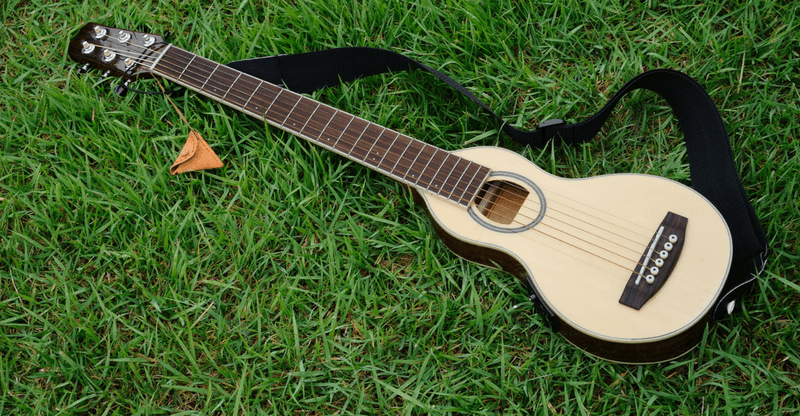Published on October 8th, 2018 | by admin
0What To Look For in a Travel Guitar
Bringing a full-size guitar with you when you go on vacation may not always be feasible. It may be too cumbersome to lug a big guitar case around, there’s risk of damage in transit, you may have to check it in the airport (and risk losing it forever).

This is one of the main reasons why guitarists often have a smaller, more compact and lightweight guitar that wins in portability. There are many models of travel-friendly guitars like the Taylor GS Mini acoustic, and you’ll be sure to find one that meets your needs.
If you’re in the market for a guitar you can bring along anywhere, here are the qualities to look for.
Comfort
Playing comfort is an important aspect to consider when you’re looking for a travel guitar. It should enable you to play it easily and without having to hunch over it because you find it’s too small for you. Look for a small-bodied guitar but don’t sacrifice your ability to play it comfortably.
For example, there are travel guitars that have full-sized fretboards so playing chords feels the same as when you play a standard-size guitar. Other travel guitars are smaller than a regular guitar overall. These scaled-down versions have a smaller fretboard, so you will have to adjust your playing. Some guitarists find this uncomfortable if they’re used to playing on a larger fretboard.
Volume
Aside from size, another thing that differentiates standard-size guitars from travel guitars is volume. Small-bodied guitars produce less volume. If you want more projection in a travel guitar – for instance, if you will be going on a gig with it – you need to look for one that is small yet produces a lot of volume for its size, like the GS Mini from Taylor. You can also opt for an electric-acoustic model that has a built-in preamp and output jack so you can plug it into an amp.
Sound Quality
Small-bodied guitars usually have a reputation for poor sound quality. There may be issues with intonation or tonal quality, articulation and clarity. Of course, travel guitars do have limitations in terms of harmonic capability, but there are models that are able to articulate melodies across all of the strings and produce a clear and balanced tone.
Carrying Case
Every travel guitar, though portable, needs a case that would protect it from bumps and dings as well as changes in humidity and temperature. Most travel guitars already come with a gig bag or a hard case. If the guitar you’re interested in doesn’t come with one, you would need to look for a case that would fit it exactly. If the case isn’t a snug fit, the guitar may get jostled around and become damaged in transit.
Those are the top factors to consider when looking for a travel guitar. It’s ideal to visit a music store and try out different travel guitars and see how each one feels in your hands. Does it feel good to play it? Listen carefully to the sound it produces – is it loud and clear enough for your needs? Does it have the tonal quality you want? And lastly, does it come with a case?
If you answer ‘yes’ to these questions, then great, you’ve found a good candidate to be your travel companion. Have fun shopping and let us know what you got!














